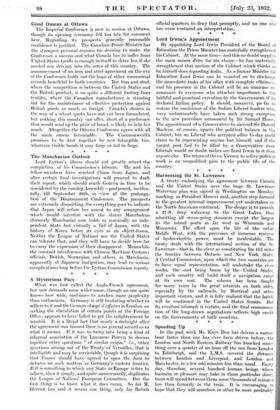A Mysterious Pact What was first called the Anglo-French agreement,
but now demands some wider name, though no one quite knows how wide, continues to awaken more perplexity than enthusiasm. Germany is still hesitating whether to adhere to it and the German chargé d'affaires in London, on seeking the elucidation of certain points at the Foreign Office, appears to have failed to get the enlightenment he wanted. It is a literal fact that nearly a fortnight after the agreement was framed there is no general accord as to what it means. If it was to bring into being a kind of informal association of the Lausanne Powers to discuss together other questions "of similar origin," i.e., other questions arising out of the Treaty of Versailles, that is intelligible and may be serviceable, though it is surprising that France should have agreed to open the door to debates on such matters as Germany's eastern frontier. If it is something to which any State in Europe is free to adhere, then it simply, and quite unnecessarily, duplicates the League of Nations' European Committee. But the first thing is to know what it does mean. So far M. Herriot has said it means one thing, only for British official quarters to deny that promptly, and no one else has even ventured an interpretation.














































 Previous page
Previous page